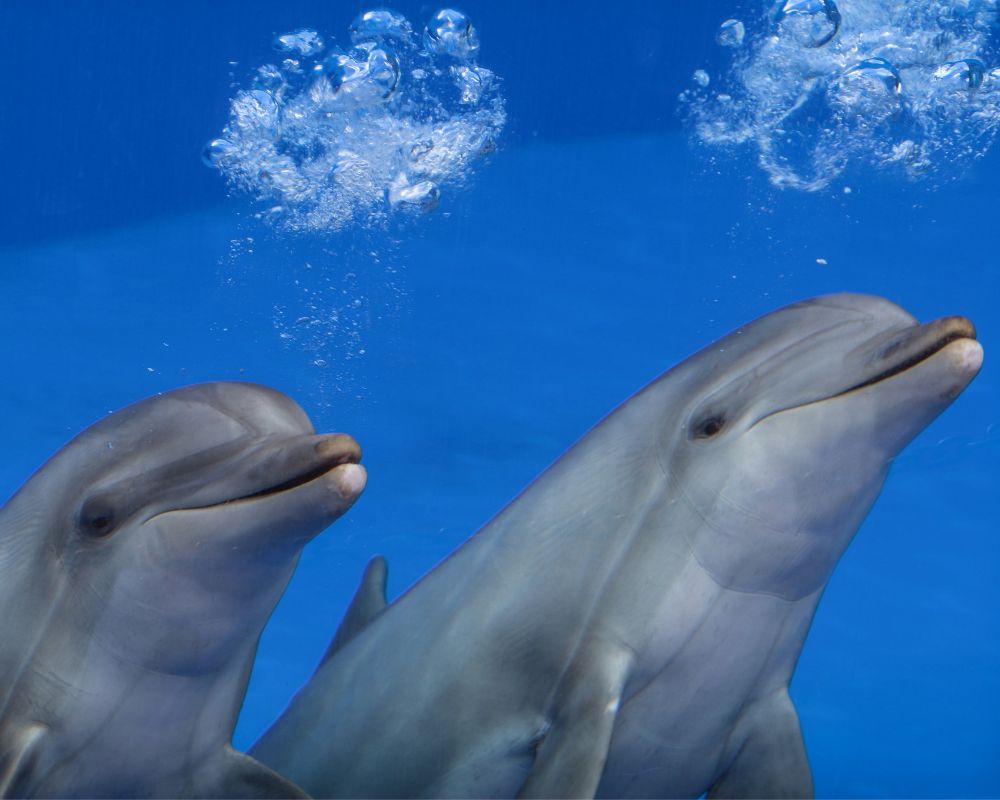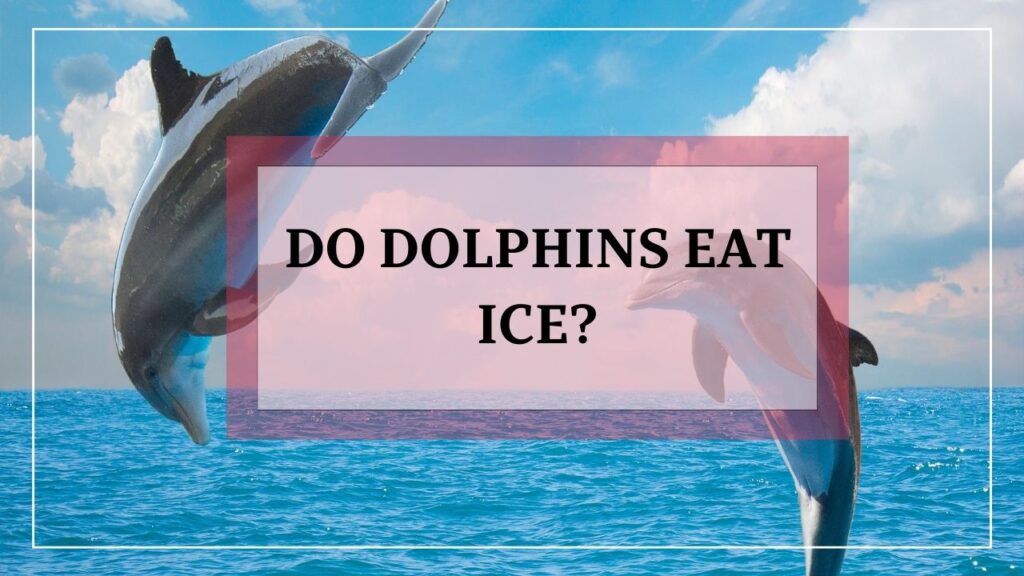When it comes to dolphins, these magnificent creatures never fail to amaze us with their intelligence and agility. One question that frequently pops up is, “Do dolphins eat ice?”
This is an intriguing question, and it’s not surprising that people are curious to know the answer.
After all, ice is a common element found in the ocean, and it’s natural to wonder if dolphins consume it as part of their diet.
In this blog post, we’ll explore this topic in detail and help you understand why dolphins don’t eat ice.
Do Dolphins Eat Ice?

As much as we might like to think that dolphins are enjoying a cool ice pop in the ocean, the truth is that they don’t eat ice. So, why might dolphins be interested in ice, and what does science say about it?
The Short Answer: No, Dolphins Don’t Eat Ice
Dolphins are carnivorous mammals and their diet consists mainly of fish, squid, and other marine invertebrates. While it’s true that dolphins might encounter ice in the ocean, they do not eat it. There are a few reasons why dolphins don’t eat ice, which we’ll discuss in a moment.
Why Might Dolphins Be Interested In Ice?
While dolphins don’t eat ice, they might be interested in it for other reasons. For example, ice might provide a novel and interesting sensory experience for dolphins. Dolphins use echolocation to navigate and locate prey, and ice might create unique sound reflections that pique their curiosity.
Another reason why dolphins might be interested in ice is that it can be a sign of colder water temperatures, which could indicate the presence of fish or other prey. Dolphins are skilled hunters and are always on the lookout for opportunities to find food.
Scientific Studies On Dolphins And Ice Consumption
Despite the lack of evidence that dolphins eat ice, some studies have explored the topic. One study published in the Marine Mammal Science journal examined the behavior of bottlenose dolphins in the wild and their interactions with floating ice. The researchers observed that while dolphins showed interest in the ice, they did not consume it.
Another study published in the Journal of Mammalogy looked at the stomach contents of stranded dolphins and found no evidence of ice consumption. While these studies provide evidence that dolphins do not eat ice, they do suggest that dolphins might be interested in ice for other reasons.
Anecdotal Evidence Of Dolphins Consuming Ice
While scientific studies might not support the idea of dolphins eating ice, there have been anecdotal reports of dolphins consuming ice. For example, there have been reports of captive dolphins consuming ice cubes provided by their trainers as a form of enrichment.
However, it’s important to note that providing ice to dolphins can be dangerous and should not be encouraged. Feeding ice to dolphins can lead to digestive issues and cause harm to their health.
Why Do Dolphins Eat Ice?
While we’ve established that dolphins don’t eat ice as part of their regular diet, there are some reasons why they might be tempted to consume it. Let’s take a closer look at the potential reasons behind this behavior.
Possible Reasons For Eating Ice
- Hydration: One possible reason why dolphins might consume ice is to obtain water. While dolphins are marine mammals, they still need water to survive. In the wild, dolphins get most of their water from the fish and other prey they consume. However, in some situations, freshwater sources might be scarce, and dolphins might turn to ice as a source of hydration.
- Temperature Regulation: Another reason why dolphins might be interested in ice is to regulate their body temperature. Dolphins are warm-blooded and need to maintain a consistent body temperature to stay healthy. In warmer waters, dolphins might seek out cooler areas, such as where ice is present, to regulate their body temperature.
The Danger of Feeding Dolphins Ice
Feeding ice to dolphins might seem harmless or even fun, but it can actually be quite dangerous for these intelligent creatures. Let’s take a closer look at why this behavior should be avoided.
Why Feeding Ice To Dolphins Is Dangerous?
- Health Risks: One of the main reasons why feeding ice to dolphins is dangerous is that it can lead to health problems. As we’ve discussed, consuming large amounts of ice can cause digestive issues and dental problems in dolphins. In addition, providing ice to captive dolphins as a form of enrichment can lead to health problems if consumed in large amounts.
- Disruption of Natural Behaviors: Feeding ice to dolphins can also disrupt their natural behaviors. Dolphins are highly intelligent creatures with complex social structures and natural behaviors that are important for their well-being. When humans interfere with these natural behaviors by feeding them ice, it can lead to long-term negative effects on their health and social interactions.
- Digestive Issues: As we’ve mentioned earlier, consuming large amounts of ice can lead to digestive issues for dolphins. This is because they do not have the ability to break down and digest large amounts of ice. This can lead to blockages in their digestive system, which can cause serious health problems.
- Dental Problems: Chewing on hard ice can also cause damage to the teeth of dolphins. Their teeth are adapted for catching and consuming fish and other prey and are not designed for chewing on hard objects like ice. This can lead to dental problems and discomfort for the animals.
The Negative Impact Of Feeding Ice On The Marine Environment
Feeding ice to dolphins not only poses a risk to the health of these intelligent creatures but can also have a negative impact on the marine environment. When humans interact with dolphins by feeding them ice, it can lead to changes in their natural behavior, such as an increased dependency on humans for food. This can lead to a disruption of the ecosystem and the natural balance of the marine environment.
Furthermore, when humans dispose of ice in the ocean, it can lead to pollution and harm other marine animals. The chemicals and preservatives found in some ice products can also be harmful to marine life.
Conclusion
Now that we’ve explored the question of whether dolphins eat ice, let’s recap the main points. While there is some evidence of dolphins consuming ice, it is not a common behavior and there are potential risks associated with feeding them ice. Dolphins may be interested in ice for various reasons, such as hydration or temperature regulation, but it is important to remember that they have adapted to their natural environment and do not require human intervention to survive.

